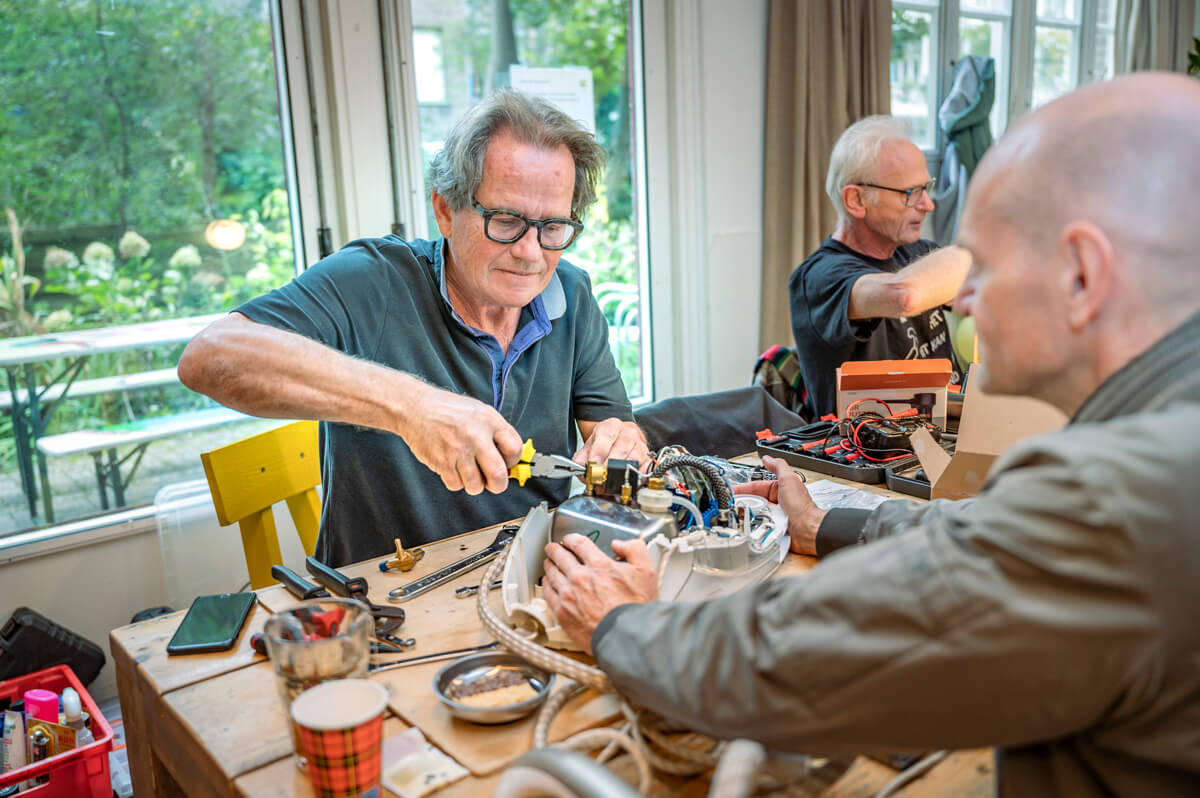
This article was updated on 11 July 2024 (2nd paragraph: link to text as published in the Official Journal of the EU)
The European Parliament on 23 April officially adopted the directive on the right to repair. A large majority of MEPs – 584 out of a total of 705 members – voted in favour. The vote was the final step in a process that has been ongoing for several years. The European Parliament already reached a preliminary agreement on the issue in early February.
The adopted text was published in the Official Journal of the European Union on 10 July. Member states now have two years to turn it into a law in their own countries.
Repair Cafés mentioned by name three times
In the European legal text, Repair Cafés are mentioned by name three times. All times it is in connection with the European online platform to connect consumers and repairers. That platform should primarily ensure that consumers can find professional repairers. “But, in order to promote sustainable consumption, member states should be able to extend the scope of their section on this European platform to include […] community-led repair initiatives, such as Repair Cafés.”
The platform should therefore also allow consumers to find a Repair Café in their neighbourhood. Repairers listed on the platform should be able to demonstrate their adherence to “certain repair standards”. What exactly those standards are is not specified.
‘Experienced repairers who repair items together with you’
Martine Postma of Repair Café International anticipates a possible description of the repair standards that Repair Cafés adhere to. “In the case of Repair Cafés, it could say that you will find skilled and experienced repairers there who – on a voluntary basis and with an eye for safety – do everything they can to repair broken objects together with you. They also give advice on how to handle and maintain items.”
Member states must also take additional measures to promote repair under the new European agreements. The text cites several examples of financial and non-financial measures that could be taken. Again, it refers to initiatives such as Repair Cafés. “Measures of non-financial nature could include information campaigns or support to community-led repair initiatives, for example by providing space in community or cultural centres.”
Trainings to teach more people to repair
Among financial measures, it is suggested that member states can opt for repair vouchers, repair funds or taxation measures. In addition, they can organise or finance training programmes to ensure that more people learn repair skills.
More information
- Read the European Parliament press release on the vote on 23 April 2024
- Read the exact text adopted
- Read our news article from early February on the preliminary agreement w.r.t. the right to repair
- Read the text in the Official Journal of the European Union

This post has 0 comments